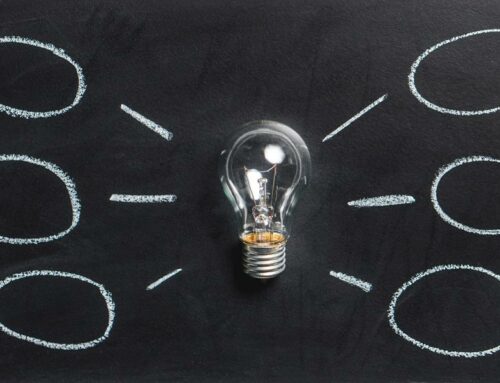There are two main reasons for conserving energy. The first is money and the second reason, and equally important, is the environment.
1. Money
Whether it is electricity, gas, oil, or coal, a huge amount of energy is wasted unnecessarily. When all the wasted energy is added up, it could save millions of dollars annually. A single household could save hundreds of dollars alone if simple changes are implemented.
2. Environment
The less we consume, the more we can save our natural resources. Saving energy will help conserve the earth’s natural resources and protect plants and animals from being destroyed.
The Best Tips for Saving Energy
1. Turn your refrigerator down
Your refrigerator consumes on average 13.7% of your total home energy use. To save electricity at home, set your fridge to 37 degrees Fahrenheit and your freezer to 3 degrees Fahrenheit. This way, the fridge, and the freezer will consume less energy.
2. Use energy-efficient light bulbs
Install energy-saving CFL or LED bulbs for all your lighting and reduce your energy use by around 25-35 percent.
Related article: 69 Eco Friendly Products for the Home
3. Clean or replace air filters
Air conditioners and heaters use the most energy in your home and make up a large part of your electricity bill. They use even more energy when the air filters are dirty for them to work efficiently. Make an effort to clean and replace filters as recommended.
4. Do full loads
This is one of the easiest ways to conserve energy at home. Simply wait for a full load before running your dishwasher and washing machine. Yep, no need to do laundry every day.
5. Air-dry dishes and clothes
Speaking of laundry and dishes, let your dishes air-dry Instead of using your dishwasher’s drying feature. For clothes, hang them clothes outside to dry.
6. Cook using the right-sized burner
Use your stove’s small burners for small pots and large burners for large pots when cooking. You will end up using less energy every time you cook.
7. Cut down on air leaks in your home
Seal up any window and door cracks with weather stripping or caulk. This ensures that you don’t spend too much energy staying warm during winter and cool in the summer.
8. Keep your house a little hotter in the summer and a little cooler in the winter
Set your thermostat to 68 degrees Fahrenheit in winter and to 78 in summer. This may force you to wear lighter clothes in summer and a few extra layers in winter instead of changing the thermostat temperatures.
9. Wash clothes in cold water
This is one of the best energy-saving tips to save you money. When washing your laundry, use the cold setting on your washing machine instead of using hot water. This way, you’ll save around $115 every year.
10. Install a programmable thermostat to save energy
This eco-friendly product will save you up to 10% on electricity costs. Program your thermostat to heat or cool to more cost-friendly temperatures and conserve energy.
11. Use your window shades
Close your blinds to keep out the sun during summer and keep them open during winter to bring in warm rays. When you do this you won’t have to use a heater or an air conditioner
12. Turn off all lights, appliances, and electronics, not in use
Here’s another one of the simplest energy conservation techniques. Make it even easier by installing a power strip that will turn off multiple items at once. Power strips also help to efficiently distribute energy to your appliances wasting less electricity.
13. Use low-flow faucets and showerheads
Are your water bills getting higher by the day? Replace your current showerhead with one with a flow rate of fewer than 8 liters per minute to save on water bills.
14. Repair any electrical issues in the home
Fix any electrical issues such as electrical surges, burnt-out bulbs, or constant flickering. Such fixes ensure that your electrical equipment is running more efficiently while optimizing energy output.
15. Invest in energy-efficient appliances for the home
Replace old appliances such as washers, dryers, and fridges with new ones that are more energy-efficient. Look for appliances with ENERGY STAR ratings and logos. Such appliances use less energy.
Related article: Energy Efficient Appliances
16. Set the water heater to the lowest comfortable setting
If your home has more than two people then your ideal water heater setting should be around 115 degrees Fahrenheit. This setting will reduce the amount of energy necessary for heating water.
17. Do laundry efficiently
Laundry takes up a lot of energy so, find ways to do it efficiently and you’ll end up saving a lot of energy. You can try a few neat tips such as using the dry sensor feature on the dryer and cleaning the lint trap between dry cycles.
18. Check that the home is insulated properly
Rain could easily damage your home over time. Find any damage such as air leaks. Also, check the insulation in the walls, attic, and around the plumbing. Fix or seal any damage to keep unwanted air out.
19. Shut doors and close curtains
A simple way to practice how to conserve energy around the home is shutting doors to areas you’re not using. Also, only cool or heat the rooms where you spend the most time.
20. Save money with solar energy
Solar energy is a safer alternative to electricity and gas. It is cheaper (actually almost free) and kinder to the environment.
Related article: Solar Power Facts
21. Turn off incandescent lights when you are not in the room
If you can’t use energy-saving bulbs just yet, make sure that you turn off all incandescent bulbs around your home when not in use.
22. Add an insulating blanket to older water heaters
If you have an old model water heater cover it with an insulating blanket and reduce standby heat loss by 25%–45%. This energy conservation trick will save you about 4%–9% in water heating costs.
24. Use microwaves and toaster ovens to cook or warm leftovers
These tend to use less energy than a conventional oven.
25. Avoid using the rinse hold setting on your dishwasher
This feature uses 10-15 more liters of hot water per use. Not only does this save water but it also saves electricity.
26. Take shorter showers
Typically, you use about 20 liters of water per minute as you shower. Reducing your shower time will save water and energy as well.
27. Install a timer for your water heater
A timer will automatically turn off your heater when you are not at home or at night. No wasted energy.
28. Clean the dryer lint filter regularly to keep your dryer running efficiently
A dirty filter will use up more energy, try and clean it regularly. Don’t forget to clean the tubing too. The long nozzle on your vacuum cleaner makes it easier to clean out particles that get beyond the filter.
Related article: Renewable Energy Facts
29. Add aerators to your faucets
Choose aerators with a flow rate of about 3.5 liters per minute for maximum energy savings.
30. Turn off your water heater if you plan on leaving home for a few days
Always remember to turn off your water heater if you won’t be around for a couple of days even if you’ve installed a timer.
31. Unplug battery chargers
This is one of the most easily ignored energy conservation techniques. We ignore it without even realizing it. Unplug chargers as soon as the batteries are fully charged or the chargers are not in use. Most chargers continue to draw power even when not charging a device.
These tips on how to conserve energy may seem like inconsequential adjustments but, believe us, these small steps become great leaps when each one of us makes an effort, no matter how small.


